|
Code:
127336
|
Saving time and money through a best practice investigation approach

TIN news: Chris Dyson, Senior Partner and Marine Engineer, Brookes Bell Group, notes that although the shipping and offshore industries are constantly striving to improve safety standards, incidents in the marine environment continue to occur, with considerable financial, environmental and human costs. The nature of these incidents can vary considerably, from fires and explosions, to crane failures, grounding, or even the total loss of a vessel or asset at sea. However, what is consistent in all such cases is the need to investigate the incident and its cause.
After an incident, those involved understandably often look to resolve the matter using the most cost effective means available, in line with the tough financial landscape. On occasions, this means that the individual or individuals responsible for appointing consultants to investigate an incident underestimate the importance of investing in counsel that is independent, professional, honest and dependable. In the longer term, this can result in potential issues with litigation as the matter progresses, and also the extension of the investigation, leading to further costs and downtime.
Mitigating and managing an incident
In the case of an incident at sea, partnering with the right consultants can help safeguard business continuity and manage risk, with sound technical management advice and also assistance in providing input for commercial and legal mitigation. In a truly global industry, there is an increasing demand for global partners that can deliver consistently high standards of incident investigations, at any time and in any region. Those selected should bring to the investigation practical knowledge, for example as gained at sea, as well as in depth technical knowledge. Where relevant, access to innovative investigation techniques such as flooding simulation can also prove beneficial. For example, in the case of the Costa Concordia, Brookes Bell used flooding simulations to recreate the incident that lead to the vessel’s capsize to assist in understanding how the flood water propagated through the vessel.
When an investigation team is formed, it is essential to select and mobilise the right specialists from the outset. There are many unique disciplines that can bring individual insights to incident investigations, including master mariners, marine engineers, naval architects and other specialists such as metallurgists, tribologists, fire investigators, loss adjusters, chemists and software engineers, to name just a few.
It is also important to recognise the difference between a consultant, who is an expert in a particular field, and one who simply has a working knowledge of the area under scrutiny. When tested to the highest levels, it is often no longer adequate to rely on experience alone but necessary to substantiate opinions by means of proven technical and scientific argument.
Knowledge and experience across disciplines
Experts working as part of a multidisciplinary team can complement each other during an investigation and enable the correct conclusion to be reached in a timely and cost effective manner. A crude example of this would be an engine room fire; while a fire investigator can determine the fuel source and map the fire’s development, the expertise of a marine engineer can provide understanding as to how the systems affected by the fire work and why they may have failed in the lead up to the incident. If a fracture of a pipe or connection is the suspected cause of a fuel leak, a metallurgist can also assist by determining the nature of such a failure.
Across the shipping and offshore industries there are still cases where local surveyors or inexperienced consultants are willing to take on the task of investigating an incident. These individuals commonly lack the detailed knowledge, and the resources, to complete the investigation to a suitably high standard. It is also common for local surveyors to lack access to a truly multidisciplinary team, therefore limiting the nature and scope of their investigation. For example, Brookes Bell has expertise in tribology relevant to the moving parts of machinery such as bearings, gears, pistons, seals and couplings. There are very few equivalent organisations offering independent expertise in this and other specialist fields, to the extent that Brookes Bell has worked on legal disputes where the opposing side has struggled to source an expert with the same practical knowledge and/or scientific background.
Evidence handling
Evidence handling is one area where a lack of expertise and multidisciplinary resources can be particularly apparent and costly. Following an incident at sea, an investigation is only as good as the evidence on which it is based. This means consultants should take a forensic approach to every investigation, ensuring the correct identification, storage and analysis of evidence. Getting this process correct is critical, as this evidence may be relied upon in court, used to recover losses and, where necessary, distribute blame.
If evidence is lost, the parties involved in the dispute concerned will lose the ability to quickly and effectively settle the matter in an informed way, leading to additional time and money being spent in the long run to properly establish the cause of the failure.
If an inexperienced investigator is appointed, it is not uncommon for simple but essential evidence to be overlooked during initial investigations. For example, in a crane failure investigation, an inexperienced investigator may not ask what was being lifted in terms of mass and rigging when the failure occurred, or where the crane came to rest after its failure. In addition, if the individual has not dealt with cranes on a regular basis, he or she may not be able to fully understand their design from a technical perspective, nor be able to identify all of the fundamentals and the different forces at play during a structural failure. As a further example from another field, Brookes Bell has attended tribology investigations in which the affected parts and debris have been ‘cleaned up’ ready for inspection, in turn removing vital evidence and obscuring the incident’s cause. It is advisable to leave a scene exactly as it was found until the appropriate multi-disciplinary team can arrive to conduct their enquiry.
In addition to evidence handling, consultants must be able to interpret their findings and present them when under scrutiny, on occasions as expert witnesses in some of the highest courts in the land. The burden of proof and scrutiny is often higher in criminal courts where fewer cases on incidents at sea are heard. However, in civil courts, where most cases are settled, standards are continuing to rise. This means, in turn, that there is a more pressing need for expert witnesses with the highest levels of knowledge and experience.
Ensuring a best practice investigation
To conduct an effective investigation into the cause of a failure at sea or in port, it is essential that those affected carefully select the team of experts that will attend from the outset. These experts can then ensure that all evidence is correctly evaluated and preserved so that the cause of the incident can be identified and the case resolved as quickly and efficiently as possible. Having access to accurate and forensic evidence at an early stage can save significant time and costs as an incident progresses. Although appointing local or less qualified consultants may at first seem to provide cost benefits, when evidence is lost or work is repeated due to insufficient expertise, the case can become unnecessarily more complex, expensive and drawn out.
By Chris Dyson, Senior Partner and Marine Engineer, Brookes Bell Group
The views presented hereabove are only those of the author and not necessarily those of SAFETY4SEA and are for information sharing and discussion purposes only.
After an incident, those involved understandably often look to resolve the matter using the most cost effective means available, in line with the tough financial landscape. On occasions, this means that the individual or individuals responsible for appointing consultants to investigate an incident underestimate the importance of investing in counsel that is independent, professional, honest and dependable. In the longer term, this can result in potential issues with litigation as the matter progresses, and also the extension of the investigation, leading to further costs and downtime.
Mitigating and managing an incident
In the case of an incident at sea, partnering with the right consultants can help safeguard business continuity and manage risk, with sound technical management advice and also assistance in providing input for commercial and legal mitigation. In a truly global industry, there is an increasing demand for global partners that can deliver consistently high standards of incident investigations, at any time and in any region. Those selected should bring to the investigation practical knowledge, for example as gained at sea, as well as in depth technical knowledge. Where relevant, access to innovative investigation techniques such as flooding simulation can also prove beneficial. For example, in the case of the Costa Concordia, Brookes Bell used flooding simulations to recreate the incident that lead to the vessel’s capsize to assist in understanding how the flood water propagated through the vessel.
When an investigation team is formed, it is essential to select and mobilise the right specialists from the outset. There are many unique disciplines that can bring individual insights to incident investigations, including master mariners, marine engineers, naval architects and other specialists such as metallurgists, tribologists, fire investigators, loss adjusters, chemists and software engineers, to name just a few.
It is also important to recognise the difference between a consultant, who is an expert in a particular field, and one who simply has a working knowledge of the area under scrutiny. When tested to the highest levels, it is often no longer adequate to rely on experience alone but necessary to substantiate opinions by means of proven technical and scientific argument.
Knowledge and experience across disciplines
Experts working as part of a multidisciplinary team can complement each other during an investigation and enable the correct conclusion to be reached in a timely and cost effective manner. A crude example of this would be an engine room fire; while a fire investigator can determine the fuel source and map the fire’s development, the expertise of a marine engineer can provide understanding as to how the systems affected by the fire work and why they may have failed in the lead up to the incident. If a fracture of a pipe or connection is the suspected cause of a fuel leak, a metallurgist can also assist by determining the nature of such a failure.
Across the shipping and offshore industries there are still cases where local surveyors or inexperienced consultants are willing to take on the task of investigating an incident. These individuals commonly lack the detailed knowledge, and the resources, to complete the investigation to a suitably high standard. It is also common for local surveyors to lack access to a truly multidisciplinary team, therefore limiting the nature and scope of their investigation. For example, Brookes Bell has expertise in tribology relevant to the moving parts of machinery such as bearings, gears, pistons, seals and couplings. There are very few equivalent organisations offering independent expertise in this and other specialist fields, to the extent that Brookes Bell has worked on legal disputes where the opposing side has struggled to source an expert with the same practical knowledge and/or scientific background.
Evidence handling
Evidence handling is one area where a lack of expertise and multidisciplinary resources can be particularly apparent and costly. Following an incident at sea, an investigation is only as good as the evidence on which it is based. This means consultants should take a forensic approach to every investigation, ensuring the correct identification, storage and analysis of evidence. Getting this process correct is critical, as this evidence may be relied upon in court, used to recover losses and, where necessary, distribute blame.
If evidence is lost, the parties involved in the dispute concerned will lose the ability to quickly and effectively settle the matter in an informed way, leading to additional time and money being spent in the long run to properly establish the cause of the failure.
If an inexperienced investigator is appointed, it is not uncommon for simple but essential evidence to be overlooked during initial investigations. For example, in a crane failure investigation, an inexperienced investigator may not ask what was being lifted in terms of mass and rigging when the failure occurred, or where the crane came to rest after its failure. In addition, if the individual has not dealt with cranes on a regular basis, he or she may not be able to fully understand their design from a technical perspective, nor be able to identify all of the fundamentals and the different forces at play during a structural failure. As a further example from another field, Brookes Bell has attended tribology investigations in which the affected parts and debris have been ‘cleaned up’ ready for inspection, in turn removing vital evidence and obscuring the incident’s cause. It is advisable to leave a scene exactly as it was found until the appropriate multi-disciplinary team can arrive to conduct their enquiry.
In addition to evidence handling, consultants must be able to interpret their findings and present them when under scrutiny, on occasions as expert witnesses in some of the highest courts in the land. The burden of proof and scrutiny is often higher in criminal courts where fewer cases on incidents at sea are heard. However, in civil courts, where most cases are settled, standards are continuing to rise. This means, in turn, that there is a more pressing need for expert witnesses with the highest levels of knowledge and experience.
Ensuring a best practice investigation
To conduct an effective investigation into the cause of a failure at sea or in port, it is essential that those affected carefully select the team of experts that will attend from the outset. These experts can then ensure that all evidence is correctly evaluated and preserved so that the cause of the incident can be identified and the case resolved as quickly and efficiently as possible. Having access to accurate and forensic evidence at an early stage can save significant time and costs as an incident progresses. Although appointing local or less qualified consultants may at first seem to provide cost benefits, when evidence is lost or work is repeated due to insufficient expertise, the case can become unnecessarily more complex, expensive and drawn out.
By Chris Dyson, Senior Partner and Marine Engineer, Brookes Bell Group
The views presented hereabove are only those of the author and not necessarily those of SAFETY4SEA and are for information sharing and discussion purposes only.
About Chris Dyson
 Chris Dyson has been with Brookes Bell Group since 1998. In 2003 he entered into partnership, and he continues to provide specialist advice as a Marine Engineer. Before joining the Brookes Bell team Chris served at sea for thirteen years on vessels including LPG and LNG carriers, Crude and product tankers and Large diesel electric passenger vessels. Rising to the rank of Second Engineer Chris’ expertise includes in depth knowledge of Slow speed engines, Medium speed diesel, Diesel electric propulsion and Steam turbines.
Chris Dyson has been with Brookes Bell Group since 1998. In 2003 he entered into partnership, and he continues to provide specialist advice as a Marine Engineer. Before joining the Brookes Bell team Chris served at sea for thirteen years on vessels including LPG and LNG carriers, Crude and product tankers and Large diesel electric passenger vessels. Rising to the rank of Second Engineer Chris’ expertise includes in depth knowledge of Slow speed engines, Medium speed diesel, Diesel electric propulsion and Steam turbines.



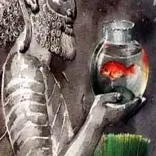
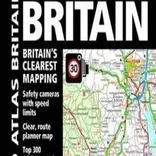
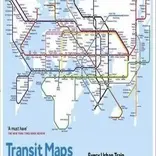
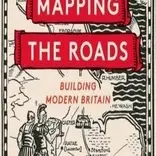


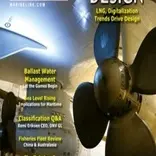

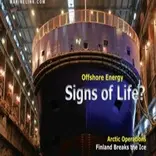

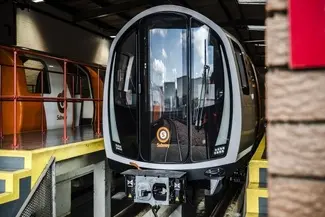
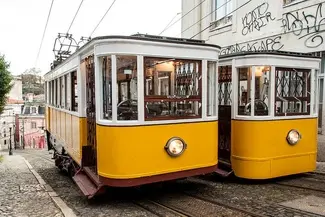
![AIRBUS A380 [MORE THAN 600 PASSENGER’S CAPACITY PLANE]](https://cdn.tinn.ir/thumbnail/4jCp4EQvCU0b/IjHVrSYQrIAqIzXuTzADR7qLYX4idQT4nfq__26E5SCUPLMqfhWkWajvuO9Wfq1ql1TjV4dhkrHliNQU82kMpo2NNftT_NGEwHc9KXtN_rk731bmifa2IQ,,/airbus-a380-structure1.jpg)

Send Comment